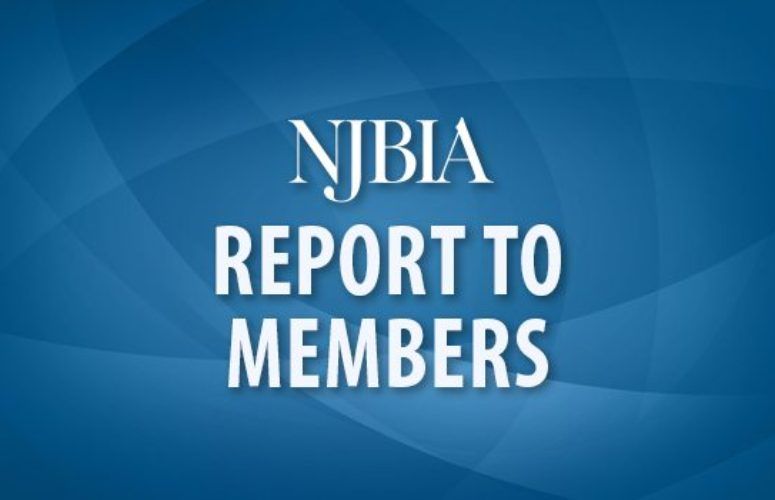
Tax Time Spotlights Need for Comprehensive Reforms
Report to Members
By Michele N. Siekerka, Esq., NJBIA President and CEO On Mar 28, 2018
New Jersey residents and businesses struggle under an incredibly heavy tax burden, paying the nation’s highest local property taxes and 7th highest state income taxes. However, there is optimism that 2018 may finally be the year comprehensive statewide tax reform actually happens because recent changes to the US Internal Revenue Code have both illustrated and exacerbated New Jersey’s predicament as a high-tax state.
About 41 percent of New Jersey taxpayers now itemize on federal tax returns, relying on the state and local tax (SALT) deduction to avoid double taxation and reduce their overall federal tax bill. New Jersey taxpayers now deduct an average $18,000 in state and local property taxes on their federal returns, but that won’t be possible beginning in the 2018 tax year when the SALT deduction will be capped at $10,000.
Most US taxpayers in states with low (or no) income taxes and much lower property taxes are unaffected by the SALT deduction cap. But for high-tax states like New Jersey, it just adds insult to injury; higher federal tax bills on top of already high state income taxes and local property taxes. So, while the drumbeat for comprehensive tax reform in New Jersey seems to grow louder every year, 2018 could be the year it is impossible to ignore.
Senate President Steve Sweeney has put together a tax reform task force of distinguished economists, tax experts, and fiscal policy leaders from academia, as well as the public and private sector, to undertake a thorough review of New Jersey’s tax structure. I’m optimistic about the outcome because the task force co-chair, Senator Paul Sarlo, told NJBIA members at our recent Taxation and Economic Policy Committee meeting that “everything is on the table” in this comprehensive review.
NJBIA’s top priority is fighting for changes that make New Jersey more affordable and competitive so that our businesses have the workers and customers they need to grow. Our recently updated outmigration research documents the continued economic cost of the outmigration of New Jersey residents and their wealth – a loss of $24 billion over 12 years. Over the past two years, these findings successfully focused policymakers’ attention on the affordability issues that were causing too many of our residents, particularly seniors and millennials, to leave New Jersey for tax-friendlier states.
NJBIA’s research and strong advocacy efforts produced results, including the repeal of the estate tax and adjustment of the state threshold for taxing retirement income so more seniors can afford to remain in New Jersey. We were encouraged by the results of our 2018 Business Outlook Survey, taken shortly after these reforms were enacted, that showed a slight uptick in the percentage of business owners planning to stay in New Jersey during retirement.
On another front, our Post-Secondary Education Task Force spent a year brainstorming solutions to the millennial outmigration problem. This group produced a 13-point plan to entice more high school graduates to pursue post-secondary education and careers in New Jersey so that our businesses have the future workforce and the customers they need to succeed.
These accomplishments are important first steps, but only a start. To make New Jersey more affordable and competitive, we must put all aspects of our tax structure on the table. New Jersey’s high taxes and affordability challenges demand a comprehensive solution in order to produce lasting results.
Related Articles:






